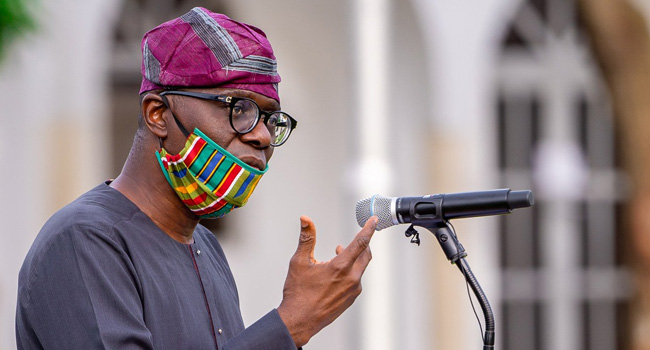Nigeria: COVID-19: Lagos Govt Stops Planned Reopening Of Worship Centers

The Lagos State Government has stopped the reopening of worship centers initially scheduled for Friday, June 19 (mosques) and Sunday, June 21 (churches).
Governor Babajide Sanwo-Olu announced the decision at a press briefing on Tuesday.
According to him, the development became necessary as a result of the rising cases of COVID-19 in the state.
On Monday, Nigeria recorded 573 new coronavirus infections, bringing the total number of cases in the country to 16,658.
Of the new infections, Lagos reported the highest figures with 216 new cases, bringing the total number of cases in the state 7,319.
Consequently, the state has remained the epicentre of infections in the country, closely followed by the FCT with 1,264 and Kano state with 1,158.
To curb further spread of the virus, the Federal Government had in March, imposed a lockdown on the three majorly affected states at the time (Lagos, Ogun State and the FCT).
Subsequently, other states began to impose varying degrees of curfews and governors eventually agreed on interstate lockdowns as they began to record new infections.
But weeks after the federal government-imposed lockdown, President Muhammadu Buhari announced again that there would be a gradual easing of the lockdown in order to allow economic activities resume as the country could not sustain an extended period of economic inactivity.
While essential workers and other levels of workers have been allowed to resume so far, the government has still appealed to those who can afford to stay at home, to do so.
Reducing interpersonal contacts and maintaining social distancing of up to 2-3 meters is said to be one of the ways to curb the spread of the virus but that in itself has proven to be a difficult task for most Nigerians.
Other measures to stay safe include sneezing or coughing into your elbow, washing of hands regularly, use of alcohol-based sanitizers and wearing of face masks.
While most businesses have been allowed to resume with strict adherence to the above measures, schools, cinemas, clubs and other places of mass social gatherings remain shut.
However, on June 1, the Presidential Task Force on COVID-19 lifted the ban on religious gatherings in the country.
While the PTF had said it does not recommend that people resume at places of worship, it noted that if they have to, they must adhere strictly to the guidelines, some of which include the mandatory use of face masks by worshippers and provision of handwashing spots at the entrances.
Also, the use of hand sanitizers with at least sixty per cent alcohol content and mandatory temperature checks was advised.
The PTF also mandated that facilities be structured in a way that physical distancing can be observed and as much as possible, congregants avoid activities such a hugging, shaking or kissing.
In addition, it noted that church/mosque volunteers (ushers, choir, security etc) that have underlying illnesses should not be allowed to serve, while the time for worship services should not be more than one hour.
Following the announcement, states began to lift the ban placed on worship centers.
In Lagos State, the governor on June 4, announced that worship centers could reopen but limit the capacity of persons per time to 40%.
For larger worship centers, he said the maximum of attendees should be 500 persons per time.
The reopening was to commence on June 21 for churches and June 19 for mosques
Channels
Comments
Post a Comment